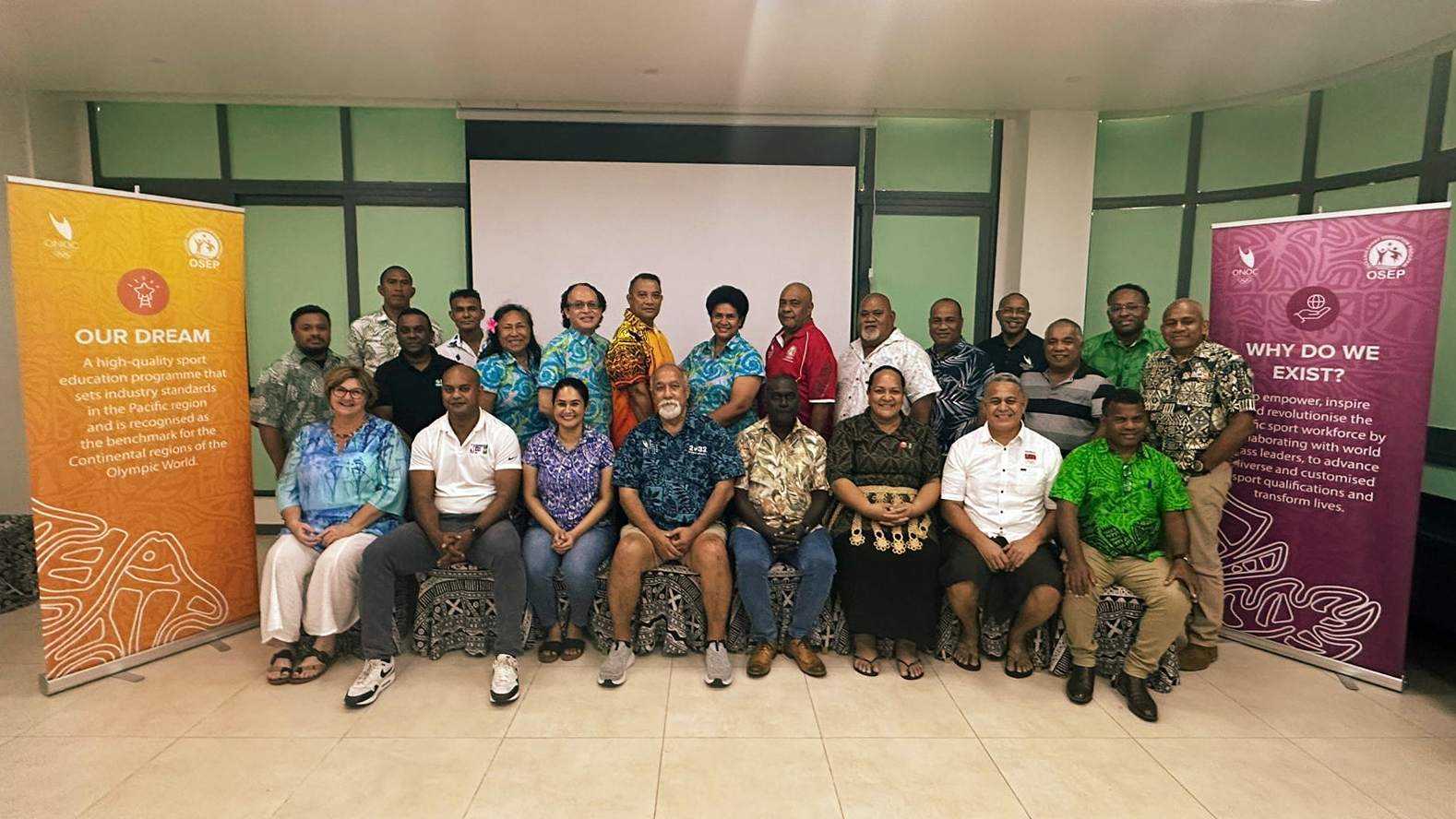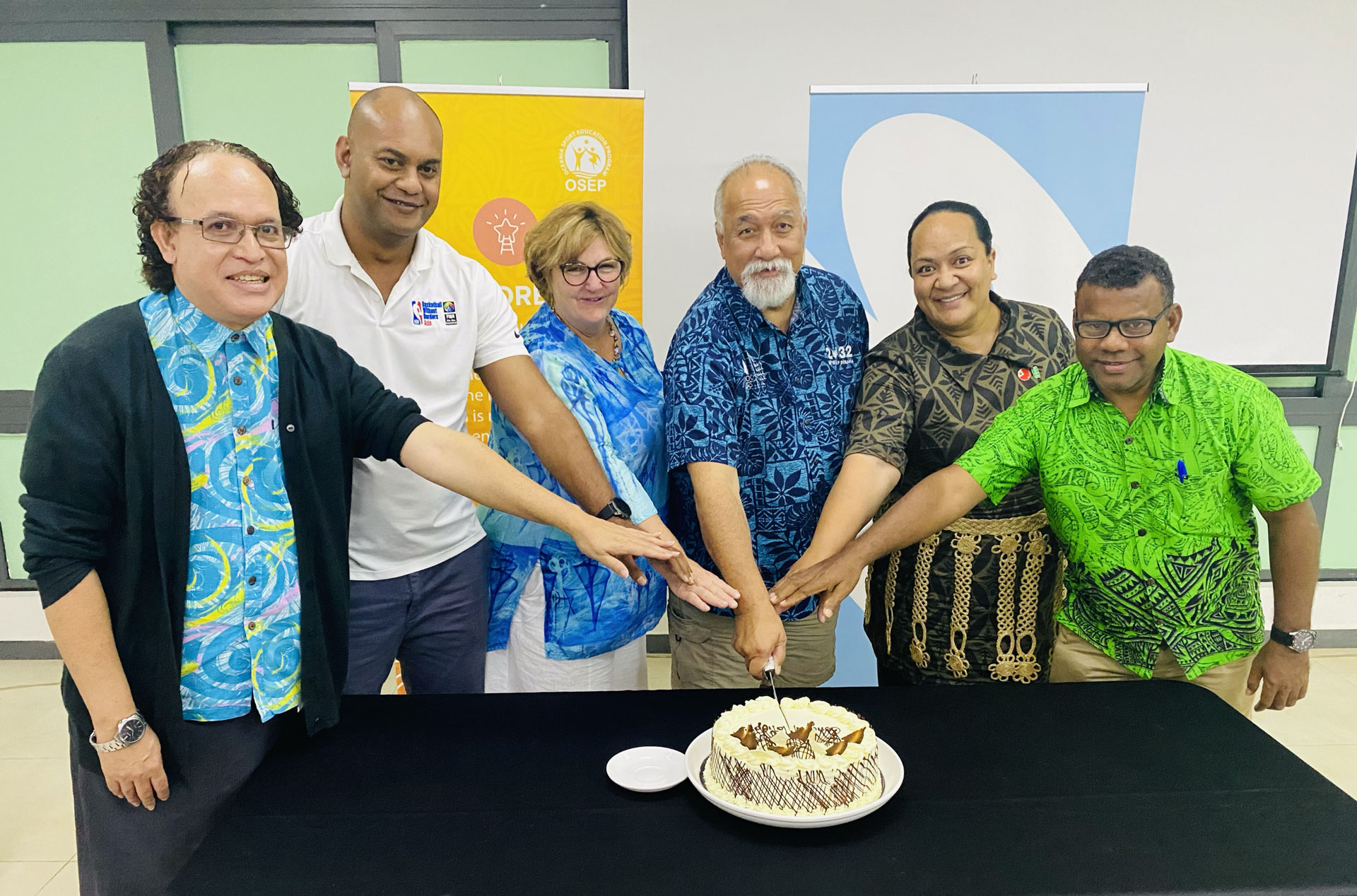Website Guide HERE

X

The endorsement by sports stakeholders of the newly designed Regional Certificate IV in Sports Administration and Diploma in Sports Management marks a major step forward for the development and growth of sport across Oceania.
The development of both qualifications are the result of a needs-assessment and mapping exercise conducted by ONOC’s flagship programme the Oceania Sport Education Programme (OSEP).
Experts from National Olympic Committees (NOCs) the sport sector, consultants, and training providers met in Nadi to review the proposed unit standards developed under the Pacific Community’s Educational Quality and Assessment Programme (EQAP).
“The endorsement meeting brought together sports sector experts, consultants, and training providers to ensure that the knowledge and skills embedded in the two qualifications are up-to-date, relevant, and aligned with the needs of the sporting industry across the region,” said Apenisa Tamani, Professional Officer – Qualification Development, Pacific Community.
Both qualifications comprise nine unit standards. With endorsement now complete, the next step is a rigorous accreditation process. Accreditation must be successfully completed before delivery and certification can begin.
Certificate IV in Sports Administration
Diploma in Sports Management

Dr Nacanieli Rika, Lead Developer, praised the collaborative approach that shaped the qualifications:
“Collaboration has been a hallmark of the entire exercise—from developers and industry advisory committees to OSEP, SPC, and stakeholders. The feedback highlighted governance and finance gaps and opportunities to improve areas such as marketing and sport for development. We set out expecting one strong qualification and now have two that feed into each other. The Certificate provides a pathway into the Diploma, which is a huge step forward for capacity-building. Including a Sport for Development unit is significant: sport is a powerful vehicle for sustainable development across health, education, and gender equality. Endorsement is a milestone—the true measure of success will be when a Pacific training provider delivers the qualification and graduates the first cohort.”
Netina Latu, Secretary General, Tonga Association of Sport and National Olympic Committee (TASANOC), underscored practical benefits:
“It’s an exciting time from the NOC perspective. This qualification will support our build-up to the 2031 Pacific Games and strengthen capacity for our members and NOC staff. If delivered locally through providers such as Tonga National University and the University of the South Pacific, it will be a huge step up for Tonga.”
Dr Suzanne Schuster, National University of Samoa, highlighted strong sector backing:
“I’m very impressed with the quality of input during the stakeholder meeting. The universities are willing to take on this qualification for our nations, and the industry is loudly advocating for it to be formally recognised. I believe stakeholders will support rollout across their institutions so we can begin offering the qualification and lift sport management standards across our nations.”
The Regional Certificate and Diploma in Sports Management provide a comprehensive, Pacific-contextualised pathway for learners to gain multi-disciplinary skills relevant to the sport sector. Delivery will combine theory and practical coursework, with flexible pathways including Recognition of Prior Learning (RPL) and Recognition of Current Competence (RCC) to ensure equitable access for experienced practitioners.
###
About ONOC
Established in 1981, the Oceania National Olympic Committees (ONOC) is one of five Continental Associations. It looks after the interests of 17 member nations in the Oceania Region, including Australia and New Zealand as well as seven associate members.
###
For more information, please contact;
Sitiveni Tawakevou
Chief Communications Officer (Acting)
sitiveni@oceanianoc.org
###
Digital Channels
For up-to-the-minute information on ONOC and regular updates, please follow us on Facebook, Twitter, Instagram LinkedIn and YouTube.